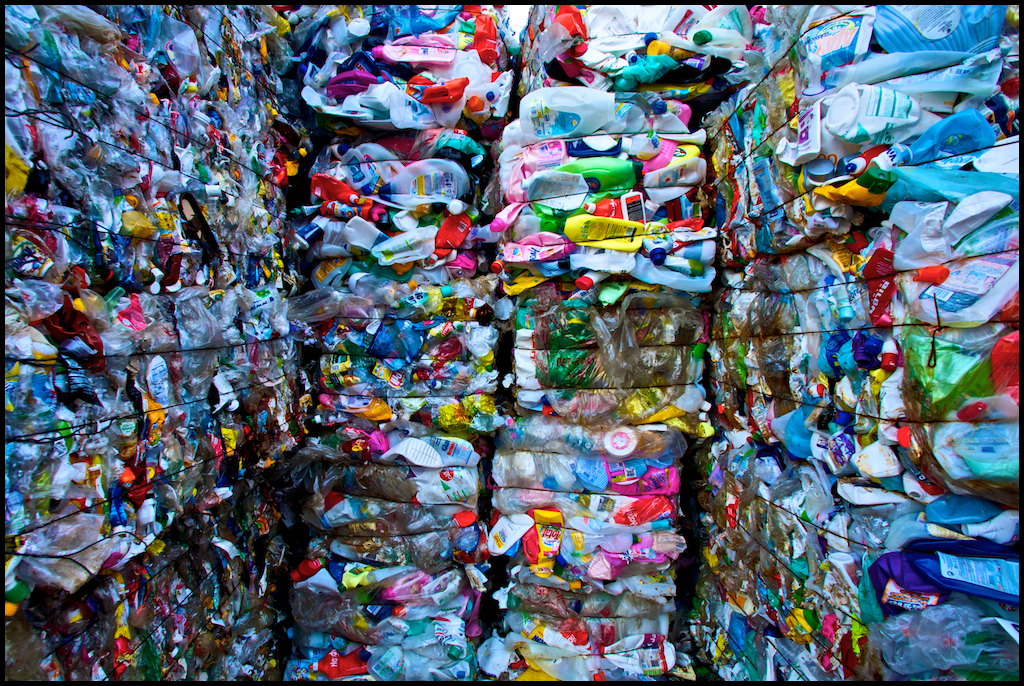 With landfills bursting at the rim and pollution filling our oceans and rivers, a huge amount of reusable materials are being thrown away in an ever growing global disregard for preserving resources. By simply taking a quick look at recycling statistics online, there is an overwhelming sense that we aren’t doing enough to combat waste. For example, Americans throw away 25 million plastic bottles ever hour, 18 billion diapers every year, and enough soda cans to reach the moon and back – 20 times!
With landfills bursting at the rim and pollution filling our oceans and rivers, a huge amount of reusable materials are being thrown away in an ever growing global disregard for preserving resources. By simply taking a quick look at recycling statistics online, there is an overwhelming sense that we aren’t doing enough to combat waste. For example, Americans throw away 25 million plastic bottles ever hour, 18 billion diapers every year, and enough soda cans to reach the moon and back – 20 times!
Fortunately, there are also various projects, schemes, and companies who are looking at our rubbish and coming up with amazing and inventive ideas to help in the battle against waste. From clothes and food, to music, art, and energy, it seems like many people have started to use trash as their primary source for materials. Therefore, here are five great recycling initiatives happening at the moment around the world:
1) Food
An estimated 1.2-2bn tonnes of food is being wasted in the world every year, with the United Nations stating that all one billion people who go hungry could be fed by the food that is wasted. Food Not Bombs is a world wide program which collects and redistributes food that would be otherwise discarded as a form of protest against poverty and war. With no formal leader or president, Food Not Bombs is a collection of independent “Do-It-Yourself” groups with an estimated 1000 chapters based in 60 countries who regularly distribute free vegetarian and vegan meals with food which would be otherwise thrown-out.
2) Clothes
Thread LLC’s plastic bottle recycling scheme in disaster stricken Haiti employs over 1,300 residents whereby millions of bottles are converted into raw materials and fabrics to eventually be sold as consumer products in the US. Thread believes that trash offers job creation and provides opportunities for economic growth in some of the most deprived countries in the world. They argue that once the money being pumped into the country as a result of the disaster eventual stops, then the projects helping Haitian’s will also stop. So through creating jobs rather than just providing handouts, as well as clearing up the environment in Haiti which literally sometimes stops the traffic due to the large sum of uncollected waste, Thread are hoping to change people’s with long lasting and sustainable jobs.
3) Music
In Cateura, Paraguay the majority of residents live on top of a landfill site, where their main source of income comes from sorting through rubbish and selling or refurbishing what ever they can find. Favio Chávez, an environmental engineer with a musical background, was working on a waste recycling project in Cateura when he met Nicolás Gómez, a litter picker working on the landfill. Chávez and Gómez began experimenting with materials to make string and wind instruments, which has led to the forming of The Recycled Orchestra. The Orchestra helps local children to stay out of trouble, prevent them from playing on the landfill, and to give them experiences they wouldn’t otherwise have access to.
4) Art
Plastic debris is seriously damaging our oceans, and it is estimated by the UN that there are roughly 50,000 pieces of plastic per every square mile of the ocean. With billions of pairs of non-biodegradable flip-flops being made every year, broken and battered flip-flops have been littering large areas of the Kenyan coastline. Both domestic waste and waste being carried to the shore from the Middle East, South Asia and Australasia has therefore led to reusing the materials being washed up on the beaches. Ocean Sole, set up by biologist Julie Church, has turned over 50 tonnes of dirty flip-flops into various ornaments and jewellery to be sold around the world, resulting in job creation and mobility for local workers, as well as providing an extreme cleaning solution.
5) Energy
When options of reusing, recycling and reducing waste have been exhausted, it is possible to send the residual waste onto Energy Recovery Facilities which then provides power for the national grid. Instead of going to landfill, the SELCHP (south-east London combined heat and power) will handle 464,000 tonnes of waste per annum to produce low-carbon energy and heat to 48,000 homes and businesses in London. This provides a sustainable solution by reducing the amount of waste going to landfill, moving away from the reliance of fossil fuels, and reducing CO2 and nitrous oxide emissions by 8,000 tonnes a year.
